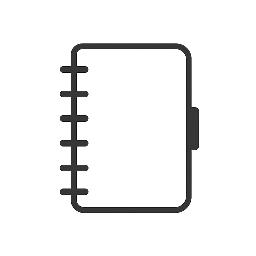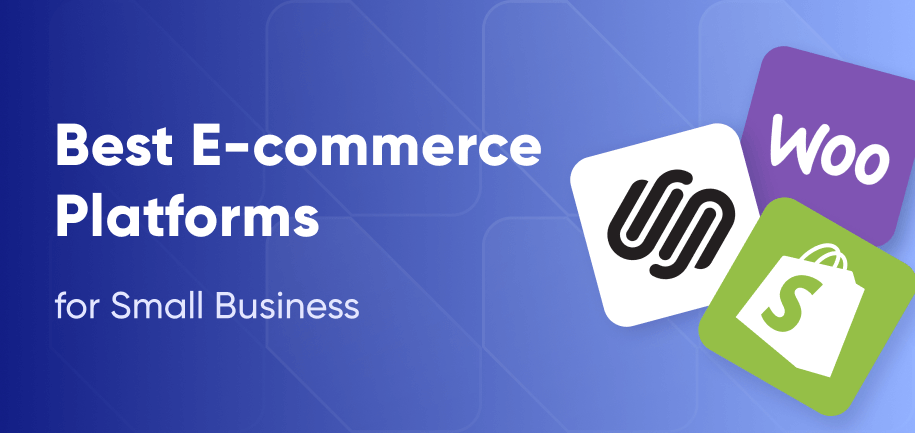Introduction
Starting a new business today means embracing the digital marketplace. Whether you’re launching a boutique clothing line, selling handmade crafts, or offering digital services, choosing the right e-commerce platform is critical to your success. With so many options out there, it can feel like navigating a maze. Each platform offers different features, pricing plans, and technical capabilities — so which one should you pick?
Your e-commerce platform is the foundation of your online store — it shapes how customers interact with your brand, how easily you manage your products, and how smoothly your business scales. The right choice can supercharge your growth, while the wrong one can hold you back.
In this guide, we’ll explore the best e-commerce platforms for new businesses in 2025, breaking down their strengths, ideal users, and pricing. Whether you’re a tech novice or a digital pro, this article will help you pick a platform that fits your needs perfectly.
Why Choosing the Right E-commerce Platform Matters
Imagine building a house — you want a solid foundation, reliable materials, and a layout that suits your lifestyle. Your e-commerce platform is no different. It needs to:
- Provide an easy way to showcase and sell your products
- Handle payments securely and efficiently
- Integrate with marketing tools like social media and email
- Scale with your business as it grows
- Offer support and updates without technical headaches
Choosing poorly can mean wasted time, lost sales, or costly migrations later on. So, let’s dive in and explore some of the top platforms designed to help new businesses thrive online.
1. Shopify – Best Overall for Growth
If you’re looking for a reliable, scalable, and user-friendly platform, Shopify tops the list. It’s trusted by over a million businesses worldwide, from startups to big brands like Allbirds and Gymshark.
Key Features:
- Drag-and-drop store builder with customizable themes
- Over 6,000 apps for marketing, inventory, shipping, and more
- Multi-channel sales on Instagram, Facebook, Amazon, and eBay
- Secure payment processing with Shopify Payments
- 24/7 customer support and extensive documentation
Why It’s Great for New Businesses:
Shopify’s intuitive interface means you don’t have to be a tech expert to get started. Plus, its app ecosystem lets you add features as you grow without needing a developer. Shopify’s pricing starts at $29/month, making it accessible for most startups.
2. Wix eCommerce – Best Value for Beginners
Wix offers an affordable, beginner-friendly platform with a strong focus on design. If you want a beautiful website without complicated setup, Wix is a fantastic choice.
Key Features:
- Easy drag-and-drop website and store builder
- Mobile-optimized, stylish templates
- Built-in marketing tools including email campaigns and SEO
- Multiple payment gateways supported
- Transparent pricing with plans designed for small businesses
Why Choose Wix?
Wix is perfect for solopreneurs or small businesses that want to launch quickly with minimal fuss. It’s also great if you want total control over design but don’t want to hire a developer.
3. Squarespace – Best for Creatives
If your brand relies heavily on visual appeal—think photographers, artists, and fashion designers—Squarespace offers stunning, professionally designed templates that showcase your products beautifully.
Key Features:
- Award-winning, mobile-responsive templates
- Integrated inventory, order management, and analytics
- Seamless integration with email marketing and social platforms
- Built-in blogging and SEO tools
Why It’s Ideal for Creatives:
Squarespace makes your website look like an art gallery, attracting customers through style and storytelling. It’s priced from $16/month with a 14-day free trial, making it accessible to startups.
4. BigCommerce – Best for Scalability
Planning to grow fast? BigCommerce offers enterprise-grade features without the enterprise price tag, making it a smart choice for businesses that want room to expand.
Key Features:
- No transaction fees
- Advanced SEO features to boost organic traffic
- Multi-channel selling support (Amazon, eBay, social media)
- Highly customizable themes and APIs
Why Choose BigCommerce?
If you’re serious about growth and want to avoid surprises with fees or limitations, BigCommerce has your back. Pricing starts at $29/month.
5. WooCommerce – Best for WordPress Users
Already have a WordPress site? WooCommerce is a free plugin that transforms your site into a full-featured online store.
Key Features:
- Open-source and highly customizable
- Huge library of plugins and themes
- Built-in SEO and blogging benefits from WordPress
- Large community and developer support
Why WooCommerce?
If you’re comfortable with WordPress, WooCommerce gives you full control without monthly fees—though hosting and extensions may add costs.
6. Ecwid – Best for Adding E-commerce to Existing Websites
Want to add a store to an existing website? Ecwid lets you embed an online shop easily with minimal technical knowledge.
Key Features:
- Simple embedding with code snippet
- Supports 70+ payment gateways
- PCI-DSS certified for security
- Syncs across multiple sites and social channels
Why Ecwid?
If your website is your home base, but you want to sell products online, Ecwid is the quickest way to start without rebuilding your site.
7. Square Online – Best for Brick-and-Mortar Businesses Going Online
Already selling in-store? Square Online seamlessly connects your physical and online sales with its POS integration.
Key Features:
- Syncs inventory and sales across online and offline
- Supports multi-channel sales on social media
- Abandoned cart recovery and marketing tools
- Easy drag-and-drop builder
Why Choose Square Online?
For retailers ready to take their business online with minimal setup, Square Online is a natural extension.
Comparison Table
| Platform | Best For | Key Strengths | Starting Price |
|---|---|---|---|
| Shopify | Growth & Scalability | Multi-channel, app-rich | $29/month |
| Wix eCommerce | Beginners & Design | Easy to use, stylish templates | Competitive |
| Squarespace | Creatives & Visual Appeal | Beautiful design, integrated tools | $16/month |
| BigCommerce | Rapid Growth | No transaction fees, SEO | $29/month |
| WooCommerce | WordPress Users | Customizable, open-source | Free (hosting extra) |
| Ecwid | Existing Websites | Easy embedding, many payment options | $5/month |
| Square Online | Brick-and-Mortar Expansion | POS integration, multi-channel | Free plan available |
Conclusion
Choosing the best e-commerce platform for your new business boils down to understanding your needs, budget, and long-term goals. Are you prioritizing ease of use, design, scalability, or integration with your current systems?
No matter your choice, the right platform will give you the tools to attract customers, process orders smoothly, and grow your brand. Whether it’s Shopify’s powerhouse ecosystem or Wix’s beginner-friendly interface, your e-commerce platform should feel like a partner, not a puzzle.
Start small, plan for growth, and get selling!
FAQs
1. Which e-commerce platform is best for beginners?
Wix eCommerce and Shopify are great for beginners due to their intuitive interfaces and robust support.
2. Can I switch platforms later if my business grows?
Yes, but migrating can be complex and costly, so choose carefully from the start.
3. Are there any free e-commerce platforms?
WooCommerce itself is free if you have a WordPress site, and Square Online offers a free basic plan.
4. How important is mobile optimization?
Crucial! Most shoppers browse and buy on mobile devices, so choose platforms with responsive, mobile-friendly designs.
5. Can I sell on social media with these platforms?
Most platforms like Shopify, BigCommerce, and Square Online support direct sales on Instagram, Facebook, and more.


Leave a Reply